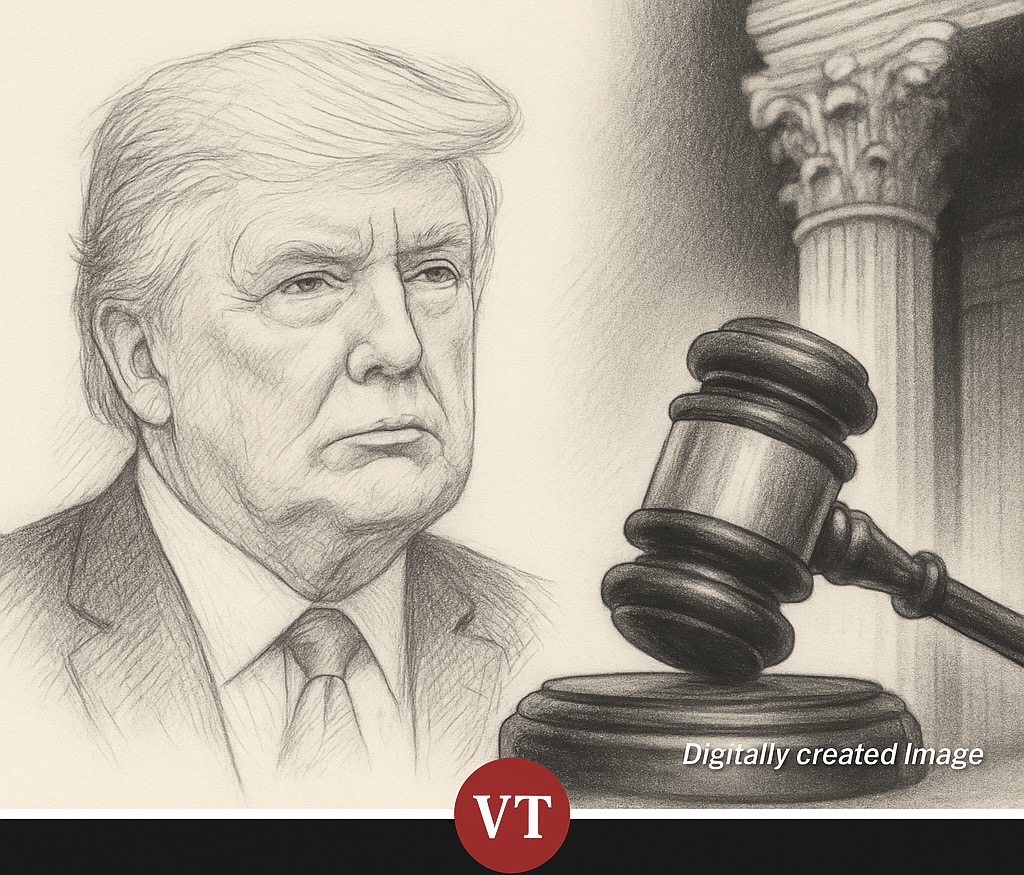CalMatters, a non-profit news organization based in California, reports that the state has filed 16 lawsuits against the Trump administration within the first 100 days of President Donald Trump’s second term—a legal blitz that reflects deepening tensions between federal executive power and state sovereignty.
Since returning to the White House on January 20, Trump has signed 139 executive orders, reshaping federal policy at breakneck speed. The sweeping actions have touched on nearly every aspect of American governance—from immigration enforcement to voting laws, healthcare funding, and environmental regulations—triggering alarm among California officials who say the administration is pushing the limits of lawful authority.
“This administration is moving faster and more aggressively than ever before,” California Attorney General Rob Bonta said, noting that the legal challenges have come at a pace unmatched in modern U.S. history.
“We’ve brought lawsuits more than once a week,” Bonta said. “At this rate, we’ll reach nearly 100 cases in just two years—nearly double the total from Trump’s first term.”
From Legal Leadership to Legal Defense
California, often seen at the forefront of progressive policy advocacy through the courts, has shifted into a defensive posture. Rather than leading campaigns to expand regulations, the state now finds itself battling to preserve existing protections. Lawsuits have targeted attempts to strip birthright citizenship, enforce citizenship requirements for voters, and cut funding to programs like AmeriCorps.
“This is no longer just about policy disagreements—it’s about preserving constitutional boundaries,” said Erwin Chemerinsky, dean of UC Berkeley School of Law. “The Trump administration is now pursuing actions that weren’t even attempted in his first term.”
Among the most sweeping challenges is a federal order requiring proof of citizenship to vote, which California argues violates both state rights and congressional authority.
“Neither the Constitution nor Congress has authorized the President to do this,” the lawsuit asserts.
A President Unleashed
Legal scholars and state officials alike say that Trump’s second-term agenda represents a more calculated and radical use of executive power, bolstered by lessons learned during his first presidency.
Chemerinsky describes it as a “flood-the-zone” approach: fast-moving, highly coordinated, and focused on dismantling what conservative thinkers call the “administrative state.” Executive orders have promised to “restore,” “reform,” and “unleash” policies long targeted by conservatives—from energy regulations to social service funding.
Unlike the first term, some of the most controversial proposals now include detaining migrants abroad, challenging the 14th Amendment, and asserting unilateral control over federal spending.
“He’s taking executive power further than any president in history,” Chemerinsky said.
Conservative Praise for the Shift
Supporters of the Trump administration view the legal battles as overdue corrections to decades of progressive policy expansion. In a speech at the Heritage Foundation, conservative law professor J. Joel Alicea argued that the White House is reclaiming constitutional integrity by limiting federal agencies and restoring presidential control.
“This is the most direct challenge to the administrative state in generations,” Alicea said. “It’s a hopeful moment for the rule of law.”
Looking Ahead: Supreme Court’s Role
The outcome of many of these lawsuits may depend on how the U.S. Supreme Court, now with a 6–3 conservative majority, chooses to interpret executive power. While some actions—like firing federal appointees—may pass legal scrutiny, others such as detaining individuals overseas or canceling birthright citizenship are expected to face tougher tests.
“I would have thought that sending people to prisons in El Salvador without court review would be the red line,” said Chemerinsky. “But even that isn’t guaranteed anymore.”
California Prepares for a Long Fight
To prepare for the prolonged legal battle, California lawmakers have allocated $50 million to support litigation against federal policies—five times the annual cost of such lawsuits during Trump’s first term.
Bonta made it clear that the state won’t back down.
“Every time the Trump administration breaks the law, we will take them to court,” he said. “It’s not normal, and it’s not acceptable.”
Source: CalMatters
A global media for the latest news, entertainment, music fashion, and more.














